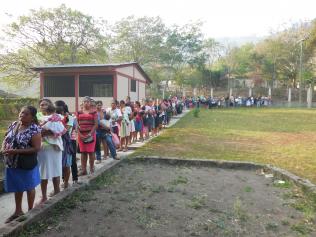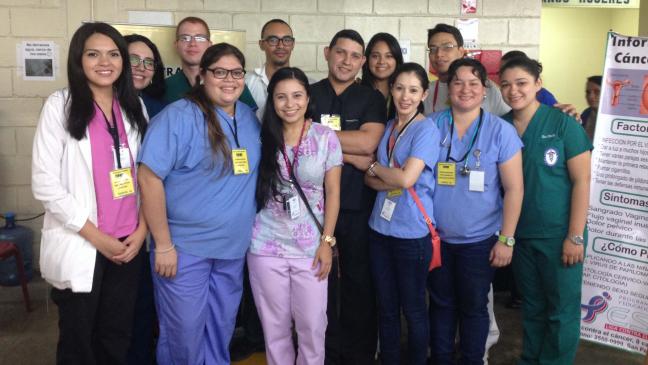Cervical cancer is the most frequent cancer in women in low- and middle-income countries (LMIC) and it kills more than 300,000 women annually.
The well-known Pap test has been a successful cervical cancer prevention strategy in high-income countries equipped with well-functioning health systems and adequately trained cytologists to review cervical specimens so that women with pre-cancer can be treated and spared the resulting cervical cancer.
More recently, vaccines against human papillomavirus (HPV), which causes cervical cancer, have become recommended for pre-teens and a bivalent vaccine provides protection against two of 14 high-risk types of HPV, while a nonvalent vaccine protects against nine types. Many LMICs have begun programs to vaccinate girls with the bivalent vaccine made more affordable through the GAVI alliance.
Dartmouth Cancer Center's partnership with La Liga Contra Cancer in Honduras began in 2013, and we have tested thousands of women for HPV. The goals have been to develop a protocol for the integrated use of Pap and HPV testing that provides clinicians and women with the most useful information to prevent cervical cancer, while simultaneously tracking the types of high-risk HPV throughout the northern part of the country.
This work is ongoing and has revealed that the types of high-risk HPV identified in Honduran women do not match what has been identified in the U.S. Additionally, the inexpensive bivalent, and more expensive nonavalent vaccines will not provide robust protection against the high-risk HPV in northern Honduras.
Our research partner La Liga Contra Cancer sponsors and manages a traveling cervical and breast cancer screening and education program that will deploy anywhere in the country where 100+ women can be gathered for screening.
On the road more than 40 weekends per year, the program is staffed by well-trained medical students organized in a program called PESCA (Programa de Prevencion y Educacion en salud y cancer).
Related publications
Atkinson AE, Mandujano CA, Bejarano SA, Kennedy LS, Tsongalis GJ Screening for Human Papillomavirus in a Low-and Middle-Income Country Journal of Global Oncology (2019)

